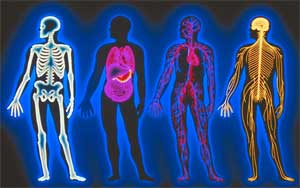A new technical report from the World Health Organization (WHO) and UN Environment Program (UNEP) made a remarkable splash earlier this month, raising worries that hormone-disrupting chemicals currently on the market pose a "global threat" to human and ecosystem health.
In the paper, State of the Science of Endocrine Disrupting Chemicals (EDCs), scientists flagged serious concern about the level of endocrine-related diseases and disorders on the rise, including: low semen quality and non-descended testes in young males; breast, endometrial and ovarian cancers; early onset of breast development in women; and developmental effects on the nervous system in children.
Endocrine disrupting chemicals, known in the scientific community as EDCs, interfere with the hormone (endocrine) system, causing developmental, neurological, reproductive and immune harm in humans and wildlife. And these chemicals can cause significant health harms even in extremely low doses.
Here in the U.S., we're exposed to EDCs from a diverse array of products from plastics (like BPA) to flame retardants. Some commonly used pesticides are also EDCs. Atrazine, for instance, is a frequently used herbicide found in 94% of our drinking water.
A call for global action
This recent WHO/UNEP report — thought to be the most comprehensive study on EDCs to date — suggests that it's well past time to get a handle on these chemicals in our environment. "An integrated, coordinated international effort is needed to define the role of EDCs in current declines in human and wildlife health and in wildlife populations," note the authors, who recommend that public health officials take the following steps:
- Focus on reducing exposures by a variety of mechanisms, and
- Close the knowledge gaps that "hamper progress towards better protection of the public and wildlife."
WHO Director for Public Health and the Environment Dr. Maria Neira concurs, citing the organization's commitment to address the global threat EDCs pose:
"The latest science shows that communities across the globe are being exposed to EDCs, and their associated risks. WHO will work with partners to establish research priorities to investigate links to EDCs and human health impacts in order to mitigate the risks. We all have a responsibility to protect future generations."







